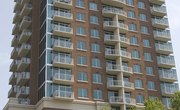
Buying a condominium unit automatically makes the owner a member of a homeowners association and requires him to pay regularly scheduled dues or fees. Those fees are established in the association budget and go toward maintaining common areas such as streets, lighting, landscaping, recreational facilities and other amenities.
Check the Rules
If you are planning to sell your condo unit, find out if your HOA has specific rules regarding such sales. You will be required to let your prospective buyers know that they will be members of the HOA and to inform them of the dues and rules. Your association may have a packet of information to give the new owner, including the master deed, bylaws, and the Covenants, Conditions and Restrictions, also called the CC&Rs. Seller disclosure requires that you turn these documents over to the buyer, along with any paperwork required by state law.
Pay Up
As the seller, you are responsible for paying the regular fees as well as any special assessments throughout the selling process. All other money that you owe, including any late fees or fines, must be paid as well. You are responsible for all money due until the actual closing has taken place. If your sale is scheduled to be finalized in the middle of a payment period, you should be able to work out a pro-rated division with the buyer to share the fee for that period. Sellers are not entitled to a refund of any portion of the fees they have paid.
If Fees Aren't Paid
Failure to pay the periodic fees allows the HOA to attach a lien on the property. A lien is essentially a public notice that you owe money on the condo. If you fall behind in your fees, you will be responsible for paying up the arrearages plus any late fees, fines and interest and any costs -- such as attorney’s charges -- the HOA incurred in collecting the unpaid fees.
Liens Prevent Sale
A lien resulting from unpaid condo fees clouds the title to the unit, making it impossible to sell. The arrearages must be paid up before the title can be cleared, allowing the sale to go through. Once a homeowners association has a lien on the property, it can start the foreclosure process if it so chooses. State laws vary on foreclosure processes. Condo fees and assessments must continue to be paid even after a homeowner has filed for bankruptcy.
References
Writer Bio
As a long-time newspaper reporter and staff writer, Kay Bosworth covered real estate development and business for publications in northern New Jersey. Her extensive career included serving as editor of a business education magazine for the McGraw-Hill Book Company. The Kentucky native earned a BA from Transylvania University in Lexington.

